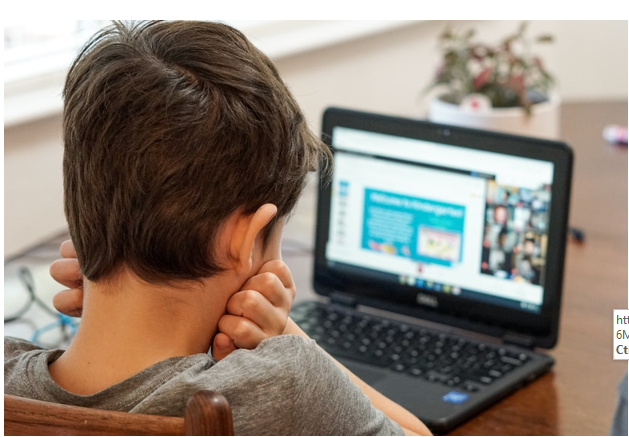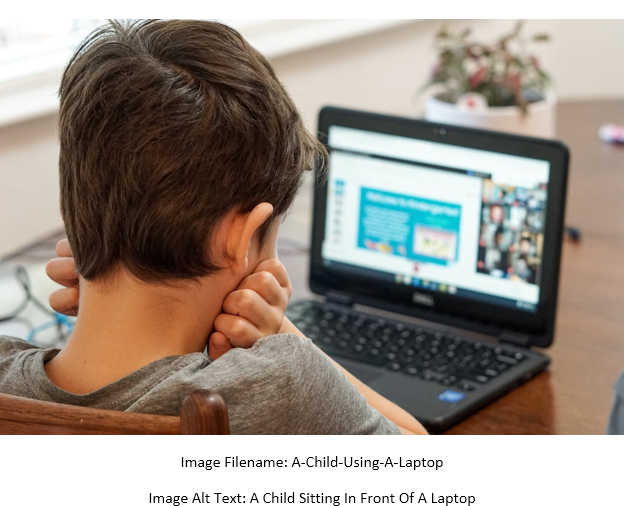

Ever since the beginning of the pandemic, most students of a school or college-going age have shifted almost entirely to online learning. Although online learning did exist before the pandemic, it has become the primary mode of learning now that a deadly virus is forcing us to limit contact with the outside world. Now, most children have a tutor for online classes to continue their education even during these unprecedented times.
While online learning has many benefits, such as convenience, students should develop an effective strategy for online classes to optimize their learning and minimize distractions. If you are a parent of a young child who is currently taking online classes, here are 7 effective ways to help your child get the most out of their online learning experience.
1. Create an organized work and study space
Studying on a couch or a desk surrounded by clutter isn’t effective. Creating a space just for work and study purposes will help your child get in the right frame of mind to study.
In a well-lit room of the house, set up a desk with a computer. This will serve as your child’s study space. Make sure the mobile device, computer, or laptop your child uses to attend online classes remains connected to the internet for constant connectivity. Remove all unnecessary objects from the desk. Ideally, the study space should be devoid of clutter other than a stationary jar, a laptop or computer, a notebook, and a trivet for a cup of coffee or cocoa to keep your child going while they sit through their online lessons.

2. Reduce noise
Loud noises seriously affect your child’s online learning experience and distract them. As an apparent, it is your job to minimize such distractions. This means that no loud noises should disturb the child while engaged in quiet study. Keep the television turned off or muted while they are in class, and instruct other family members not to talk loudly with one another. Children should have supportive family members who ensure that they are not disturbed while taking a class.
3. Encourage your child to take notes
Taking notes is the best way to retain all the information your teacher has just relayed to you in class. Encourage your child to get into the habit of taking notes during lectures so that they can consult their notes later and review them before tests and exams. Even if your child is enrolled in the best online tutoring programs, they need to take notes to maximize their learning.
4. Make sure your child gets adequate sleep at night
Make sure that your child goes to bed at a suitable time. Being sleep-deprived will affect your child’s ability to pay attention during class. Encourage all family members to turn in their mobile devices an hour before bed. Studies show that exposure to the blue light that computers and phone screens emit can affect our ability to fall asleep at night. This is because blue light hampers our body’s ability to naturally produce the hormone that makes us feel ‘sleepy,’ called melatonin.
5. Find a way to balance study time with playtime
Playtime for children is just important as studying. Engaging in fun activities like sports can help children relax and unwind after an intense studying session. They will also feel revitalized and refreshed, and when the time comes for them to take their next class, they will be able to concentrate on their lessons better.
6. Find the best tutoring platforms online
Online tutors can help your child grasp difficult concepts and perform well on exams. You can look up the best tutoring platforms online for your child. You can find classes on different subjects ranging from science to math to English and even advanced classes for older students
who need to prepare for important exams like the SAT or USMLE. The quality of an online tutoring platform also matters. Studying with an experienced and qualified tutor will lead to a better learning experience for your child,
7. Feed your child healthy, nutritious meals
Research shows that a diet that consists mostly of junk food leads to impaired academic performance for children. Foods high in refined sugars lead to skyrocketing blood sugar levels followed by a crash in blood sugar which makes a child feel fatigued. Consuming too much junk food leads to decreased attention span and makes it harder for a child to focus during class and perform well on tests and homework.
Cooking healthy meals for the family can positively affect your child’s ability to learn and grasp complex subjects. Candy and crisps can be allowed from time to time, but only in moderation and never as a meal. Instead of fast food, like burgers, pizzas, fries, and milkshakes, meals should consist of leafy greens, grilled fish, fresh fruit, sources of protein like poultry and eggs, and whole-grain bread. A balanced diet will help your child excel in studies.










 facebook
facebook
 Google
Google










